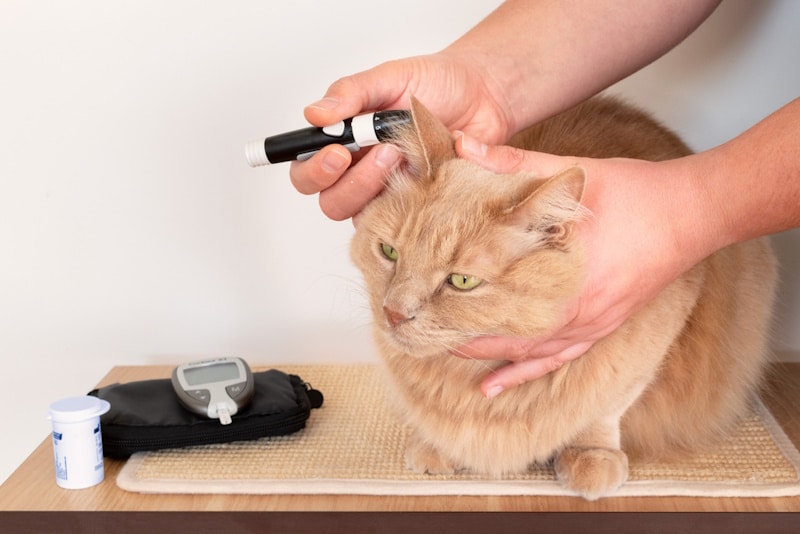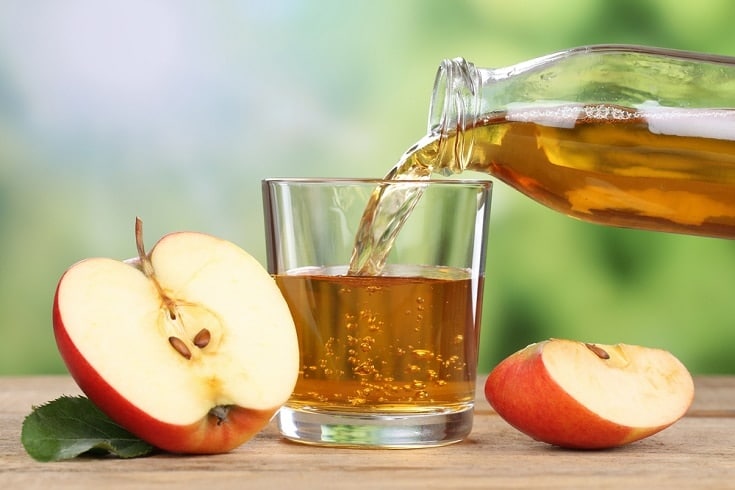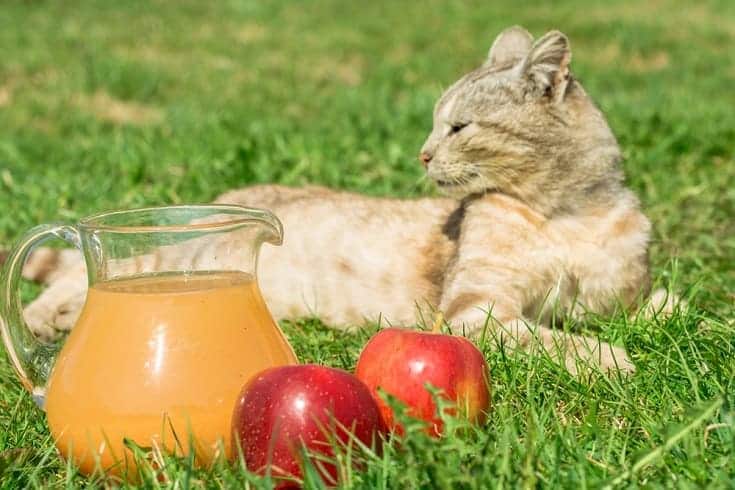Plenty of cats love to investigate glasses that have been left on the counter. Maybe they just want a drink of water—instead of using that expensive water fountain that you bought them!
But if you’ve got apple juice in that glass and your cat goes to take a little drink, is that safe? Can cats drink apple juice, or is this something to be discouraged?
The short answer is that yes, cats can drink a small amount of apple juice without suffering any ill effects. You probably don’t want to let them make a habit of it, though.
What Does Apple Juice Contain?
100 ml of unsweetened apple juice contains:
- 61 calories
- 14.5 grams of carbohydrates
- 13.2 grams of sugar
- 0 grams of fiber
- 0.34 grams of protein
Natural apple juice made from fresh apples also contains antioxidants and vitamins. Certain brands of boxed apple juice may contain sweeteners, preservatives, and other chemicals.
Diabetic Cats

Apple juice contains a considerable amount of sugar. That means if your cat is diabetic, allowing them to drink apple juice is a definite no-no.
- Increased urination
- Increased thirst
- Sudden weight loss
- Inability to jump
If your cat has any of these signs, you should speak to your vet. Diabetes can be managed and sometimes even fall into remission.
What to Do if Your Cat Loves Apples
The high sugar content of apple juice means that this isn’t an ideal drink for your cat. But you may want to offer them a healthier apple alternative.
Offering your cat a small piece of apple is better than the juice. Remember to wash the apple first to remove any traces of bacteria or pesticides.
You could also feed them a small amount of unsweetened applesauce, preferably homemade, to avoid unnecessary ingredients. Try putting a little on a saucer or add it to your cat’s food.
Remember that giving your cat apples shouldn’t ever be a substitute for feeding them a balanced, meat-based diet that’s designed to meet all their nutritional requirements.
Apple seeds contain toxic compounds, so they should always be avoided. The same goes for the leaves and stems if they’re still on the apple.
You should also brush your cat’s teeth or give them a dental treat after they’ve had apple juice or apples to cancel out the risk of them developing dental issues due to the sugar in apples.

Wrapping It Up
Apple juice is safe for cats to drink in small quantities. The high sugar levels cancel out the goodness that your cat may get in the form of fiber, antioxidants, and vitamins.
If your cat loves the taste of apple juice, consider offering them fresh apples or applesauce instead. These contain more fiber and less sugar. But remember to always avoid the seeds, stems, and leaves.
While the occasional treat of a piece of apple is safe for your cat, in reality, cats are obligate carnivores, so their digestive systems are designed to function best on a high-protein, meat-based diet—and that doesn’t include apples!
Featured Image Credit: oFFsoRRy, Shutterstock











